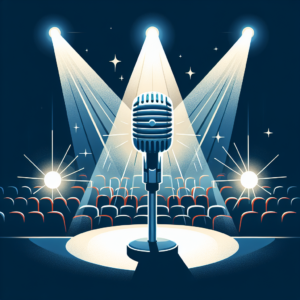Are you an auditory learner who thrives on learning through listening? If so, you may find yourself struggling to retain information when it comes to traditional study methods. But fret not! In this article, we will explore some practical tips and strategies specifically tailored to help auditory learners excel academically. From utilizing audio resources to incorporating technology, you will discover effective study techniques that harness the power of sound to enhance your learning experience. So if you’re ready to take your auditory learning to new heights, read on!
- Understanding Auditory Learners
- Identifying Your Learning Style
- Creating an Optimal Study Environment
- Effective Note-Taking Techniques
- Using Verbal and Auditory Techniques
- Utilizing Audio Resources
- Engaging in Group Discussions and Debates
- Creating Mnemonic Devices
- Practicing Active Learning Strategies
- Seeking Professional Help
Understanding Auditory Learners
Auditory learners are individuals who prefer to learn through listening and hearing information rather than through visual or kinesthetic methods. They have a strong preference for auditory input and rely on sound to process and comprehend information effectively. Understanding the characteristics of auditory learners can help identify their learning style and tailor study strategies to optimize their learning experience.
Characteristics of auditory learners
Auditory learners possess distinct characteristics that set them apart from other learning styles. They have a keen sense of hearing and can easily detect subtle changes in tone, pitch, and rhythm. These individuals tend to enjoy engaging in discussions and debates, as they excel at processing information through verbal and auditory means. They often have a strong ability to recall information that has been presented to them audibly and are skilled at verbalizing their thoughts and ideas.
Benefits of auditory learning
Choosing study strategies that align with your learning style can greatly enhance your learning experience. Auditory learners benefit from their ability to retain information through verbal and auditory means. By utilizing their strong listening skills, they can actively engage with lectures, discussions, and audio resources. They have excellent verbal communication skills, making them effective at explaining concepts to others. Furthermore, auditory learners tend to be great listeners and empathetic individuals, enabling them to better understand information presented through auditory channels.
Challenges faced by auditory learners
While auditory learners possess unique strengths, they also encounter specific challenges. Distractions in their environment can significantly hinder their ability to focus and process information effectively. Additionally, auditory learners may struggle with retaining visual or written details, as their learning style primarily relies on auditory input. These individuals may find it challenging to learn from materials that are heavily reliant on visuals, such as charts, graphs, or diagrams. Understanding these challenges will help auditory learners develop strategies to overcome them and maximize their learning potential.
Identifying Your Learning Style
Before diving into effective study strategies for auditory learners, it is essential to identify your specific learning style. The VARK model is a widely recognized framework that categorizes learning styles into four main categories: visual, auditory, reading/writing, and kinesthetic. By understanding your dominant learning style, you can tailor your study techniques to match your preferences and optimize your learning outcomes.
The VARK model of learning styles
The VARK model classifies individuals into four main learning styles:
- Visual learners: These individuals prefer learning through visual aids, such as diagrams, charts, and videos.
- Auditory learners: As mentioned earlier, auditory learners thrive when they can listen to and process information through sound and verbal communication.
- Reading/writing learners: These learners excel at processing and retaining written information through reading and note-taking.
- Kinesthetic learners: Kinesthetic learners prefer hands-on activities and learn best through physical movement and touch.
Assessing your learning style
To determine your learning style, reflect on your preferences and experiences during the learning process. Consider which methods and techniques you naturally gravitate towards and find most effective. Recall situations where you performed exceptionally well or struggled and analyze which types of input or activities contributed to your success or difficulties. You may also benefit from online quizzes or assessments specifically designed to help identify your learning style.
Recognizing auditory learning preferences
If you find that you gravitate towards listening and verbalizing information, prefer audio resources, and often engage in discussions and debates, it is likely that you have an auditory learning preference. Acknowledging your learning style and preferences is the first step towards developing effective study strategies that cater to your auditory learning needs.
Creating an Optimal Study Environment
Designing a suitable study environment is crucial for any learner, but it holds particular importance for auditory learners who heavily rely on sound and listening. By following these tips, you can create an optimal study environment that maximizes your auditory learning potential.
Choosing a quiet and comfortable space
Auditory learners thrive in environments where distractions are minimal. When selecting a study space, opt for a quiet area away from excessive noise or interruptions. Ensure the space is comfortable and inviting, as it can enhance your focus and productivity.
Utilizing noise-canceling headphones or earplugs
If a quiet study environment is challenging to achieve, consider using noise-canceling headphones or earplugs. These tools can help block out distracting background noise and create a more secluded and focused atmosphere.
Reducing distractions during study sessions
While ambient noise can sometimes enhance auditory learning, distractions can disrupt your concentration. Minimize potential distractors by turning off notifications on your electronic devices, closing unnecessary tabs on your computer, and informing those around you about your study time to minimize interruptions.
Effective Note-Taking Techniques
Note-taking is a vital aspect of the learning process for auditory learners. Employing effective note-taking techniques can enhance comprehension, retention, and recall of lecture material.
Active listening strategies
To effectively take notes, employ active listening strategies during lectures or discussions. Maintain focus and engagement by actively participating, asking questions, and taking brief mental or written notes as concepts are presented. Repeat or summarize key points to reinforce your understanding.
Using abbreviations and symbols
During note-taking, auditory learners can benefit from employing abbreviations and symbols to condense information. This technique allows for quicker and more efficient note-taking, as well as easy review and comprehension of written material later.
Organizing notes with headings and subheadings
Structuring notes with headings and subheadings can help auditory learners organize and categorize their thoughts. This method aids in the retention and retrieval of information, making studying and reviewing more manageable and effective.
Using Verbal and Auditory Techniques
As an auditory learner, incorporating verbal and auditory techniques into your study routine can greatly enhance your comprehension and retention of information. Consider implementing the following strategies:
Reading aloud
Reading aloud engages your auditory senses and allows you to both hear and process information simultaneously. By verbalizing the text, you reinforce your understanding of the material and improve your retention.
Reciting information out loud
After reading or studying a concept, recite the information out loud in your own words. Verbalizing the material helps solidify your understanding and aids in long-term memory recall.
Explaining concepts to others
Teaching someone else what you have learned is a powerful way to reinforce your knowledge. By explaining concepts to others, you engage both your auditory and verbal skills, leading to deeper understanding and mastery of the subject matter.
Utilizing Audio Resources
Auditory learners can harness the power of audio resources to further optimize their learning experience. These resources offer various auditory inputs and enable learners to engage with information through their preferred learning style.
Recording and re-listening to lectures
Recording lectures or discussions allows auditory learners to revisit the material and reinforce their understanding. By listening to the recordings multiple times, you can solidify your comprehension and fill in any gaps in your notes.
Accessing audiobooks and podcasts
Audiobooks and podcasts provide valuable auditory content that aligns with an auditory learner’s preferences. Take advantage of these resources to supplement your learning and deepen your understanding of the subject matter.
Using online audio resources
In today’s digital age, a plethora of online audio resources are available to auditory learners. Explore websites, applications, and platforms that offer audio lectures, study guides, or educational podcasts tailored to your specific field of study.
Engaging in Group Discussions and Debates
For auditory learners, engaging in group discussions and debates is a highly effective study strategy. By actively participating in these activities, you can enhance your grasping of concepts, refine your communication skills, and gain diverse perspectives.
Participating in study groups
Joining or forming study groups allows auditory learners to engage in meaningful discussions with peers who share their learning style. By exchanging ideas, explaining concepts to one another, and engaging in debates, you can solidify your understanding and fill in any gaps in your knowledge.
Engaging in collaborative activities
Collaborative activities, such as group projects or team-based assignments, provide auditory learners with opportunities to learn from and with their peers. These activities foster interaction and encourage active engagement, ultimately benefiting the learning process.
Debating and discussing ideas with peers
Debating ideas and sharing differing viewpoints are valuable activities for auditory learners. Engaging in constructive debates challenges your critical thinking skills, strengthens your argumentation abilities, and deepens your comprehension of the subject matter.
Creating Mnemonic Devices
Mnemonic devices are memory aids that help with information retention and recall. Auditory learners can create and utilize mnemonic devices to enhance their learning experience.
Using acronyms
Acronyms condense information into memorable and easy-to-remember phrases, making them effective mnemonic devices. Create acronyms based on the initial letters of a list of items or concepts that you need to remember.
Developing rhymes or songs
Rhymes and songs are powerful mnemonic devices that engage the auditory senses and make information more memorable. Transforming information into a catchy rhyme or song can help you recall it effortlessly during exams or quizzes.
Creating mental associations
Develop mental associations by connecting new information with familiar concepts or images. By establishing strong auditory and visual links, you can enhance your recall and understanding of the material.
Practicing Active Learning Strategies
Active learning strategies foster engagement, participation, and interaction with the subject matter. Auditory learners will benefit from implementing these strategies into their study routine.
Asking questions during lectures or presentations
Participating actively during lectures or presentations by asking questions not only helps clarify your understanding but also keeps you engaged and focused on the material being presented.
Engaging in role-playing or simulations
Role-playing or simulations provide auditory learners with a practical and interactive way to learn. By immersing yourself in scenarios and actively participating, you can gain a deeper understanding of concepts and strengthen your problem-solving skills.
Teaching others the material
One of the most effective ways to solidify your own understanding of a subject is by teaching it to others. As an auditory learner, your strong verbal skills make you an ideal candidate to explain concepts to your peers. Teaching others forces you to think critically, articulate your knowledge, and reinforce your comprehension of the material.
Seeking Professional Help
When faced with challenges or difficulties in the learning process, seeking professional help can provide invaluable support and guidance. Auditory learners should consider the following resources:
Consulting with teachers or professors
Reach out to your teachers or professors for assistance and clarification when needed. They can offer further explanations or suggest additional resources tailored to your auditory learning style.
Working with a tutor or academic coach
Tutors or academic coaches can provide personalized support and guidance based on your learning style. Working closely with a professional can help you overcome specific challenges and develop effective study strategies.
Exploring resources provided by learning centers
Many educational institutions have learning centers that offer various resources, such as workshops or tutoring services, to support students in their learning journey. Take advantage of these resources to improve your study habits and refine your auditory learning techniques.
In conclusion, understanding your learning style as an auditory learner is crucial in developing effective study strategies. By incorporating auditory techniques, utilizing audio resources, engaging in group discussions, creating mnemonic devices, and practicing active learning strategies, you can optimize your learning experience. Remember to seek professional help when needed and create an optimal study environment to maximize your auditory learning potential. With these strategies, you can develop effective study routines that align with your auditory learning style and achieve academic success.










